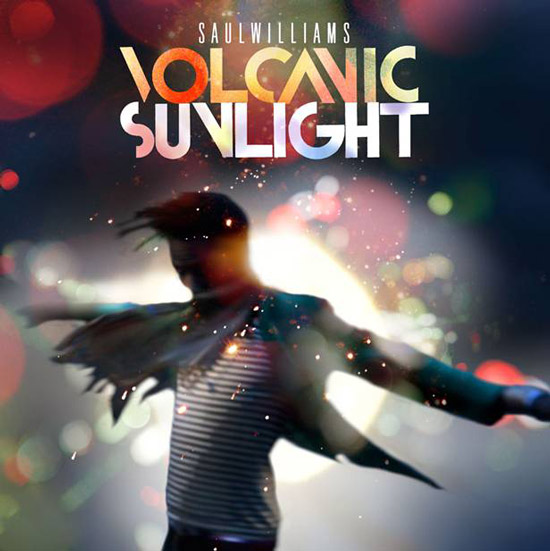Following the success of his Trent Reznor produced third album, Saul Williams has returned after a four-year absence with an album that, for the first time in his career, feels like a misstep. Williams has evolved with each new release, and Volcanic Sunlight does not veer away from this trend, but the problem with the direction Williams has taken with Volcanic Sunlight is that he’s lost one of the key aspects of his sound in the transition – his urgency.
Sunlight is by and large a pop record, a far cry from the almost militaristic march forward of albums prior. Sometimes, this poppier strategy works, like in tracks “Girls On Saturn” and “Volcanic Sunlight.” But when it does, the reason is because a needed balance is struck between catchiness and edge, effectively blending the new Saul with the old one. Alas, when Saul goes full on into pop rock territory, such as on tracks “Rocket” and “New Day,” the unfortunate reality is we’re left with an incredibly unique voice accompanied by formulaic, toothless instrumentation.
Looking back at Williams’ trajectory, it’s only partially surprising he’s ended up here. Amethyst Rock Star was essentially his slam poetry set against a musical backdrop, but follow-ups Saul Williams and The Inevitable Rise and Liberation of NiggyTardust! both featured Saul moving his focus toward more traditionally structured compositions. While it worked incredibly well on those two albums, the difference here is, again, a sorely missed sense of aggression. From a manic Saul hanging on for dear life over pounding drums and schizophrenic electronics on “List of Demands,” to the full on audio assault of “Black History Month,” there was a confrontational edge to his previous work that is alluded to, teased at, but frustratingly never fully present on Volcanic Sunlight.
Aside from the musical direction, also missing from the majority of the album is Saul’s rapid-fire delivery. In the past, Williams’ words shot out of him like a last-ditch effort to be heard among the chaotic noise around him. Here, more often than not, he’s at peace with the musical space surrounding him. He’s always been less effective on mellower tracks – quite simply, his ruminations aren’t well suited to them. Almost nowhere on the record does Saul fully sacrifice himself to the track – a characteristic that used to be his calling card.
But when Williams does return to more familiar territory, the results are thrilling. Both the lead single “Explain My Heart” and “Diagram” are vintage Saul, featuring both vocal and instrumental parts that are equal in their intensity. And, regardless of how it affects the album as a whole, there is also pleasure to be found in some of Saul’s detours. Almost despite itself, “Fall Up,” the album’s slowest burn, is a hauntingly beautiful standout. And the aforementioned “Girls On Saturn,” one of the simplest songs Williams has ever done, succeeds with its strange combination of skittering electronics and pep rally female vocal samples. Make no mistake; the album isn’t a failure, it’s just sacrificed a little too much to be a success.

